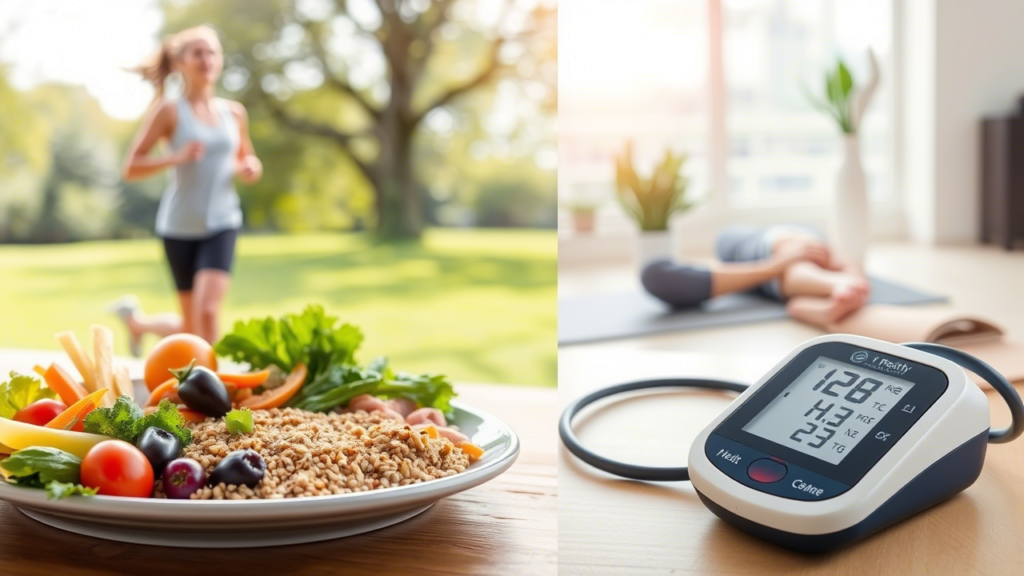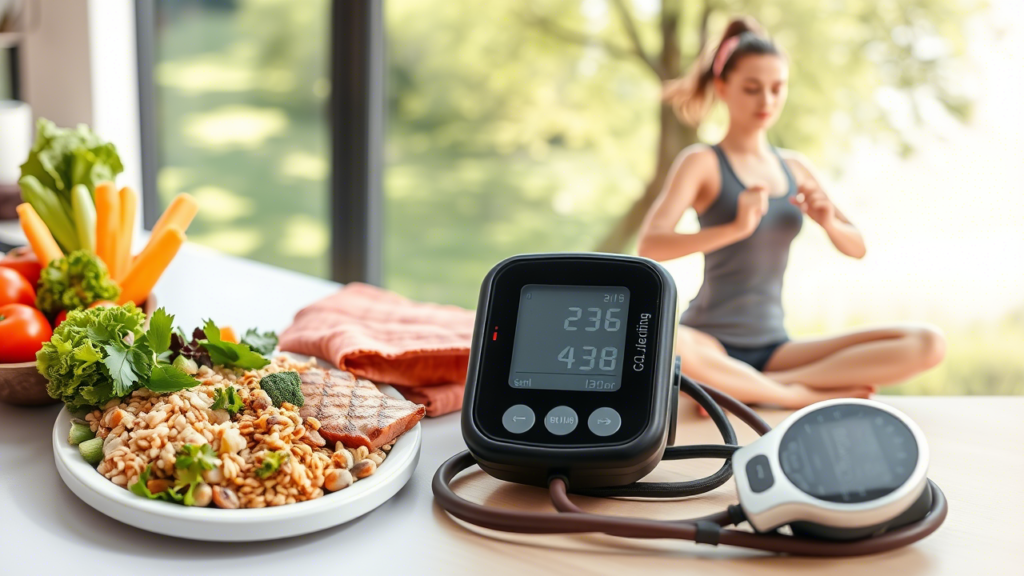High blood pressure, or hypertension, is a widespread health concern that significantly increases the risk of heart disease, stroke, kidney problems, and other severe conditions. The good news is that making certain lifestyle adjustments can help lower blood pressure naturally, reducing dependence on medication.
If you’re looking for practical and science-backed strategies to maintain a healthy blood pressure level, this guide covers everything you need to know. Let’s explore how to lower blood pressure most effectively and sustainably.
Table of Biography for “How to Lower Blood Pressure”
| Attribute | Details |
|---|---|
| Keyword | How to Lower Blood Pressure |
| Definition | The process of reducing high blood pressure (hypertension) through lifestyle changes, diet, exercise, and stress management. |
| Primary Focus | Health & Wellness |
| Main Causes | High sodium intake, lack of exercise, stress, obesity, smoking, excessive alcohol consumption, and genetics. |
| Symptoms of Hypertension | Headaches, dizziness, blurred vision, chest pain, difficulty breathing, and fatigue. |
| Common Treatments | Healthy diet (DASH diet), regular exercise, weight management, stress reduction, medication if necessary. |
| Preventive Measures | Maintaining a healthy lifestyle, limiting sodium intake, increasing potassium, and staying physically active. |
| Associated Risks | Heart disease, stroke, kidney damage, vision loss, and cognitive decline. |
| Who is at Risk? | Individuals with a family history of hypertension, obesity, high-stress levels, and poor dietary habits. |
| Recommended Blood Pressure Levels | Normal: Below 120/80 mmHg, Hypertension: Above 130/80 mmHg |
| Best Foods to Eat | Leafy greens, berries, whole grains, lean proteins, nuts, seeds, and low-sodium foods. |
| Worst Foods to Avoid | Processed foods, fast food, sugary drinks, excessive caffeine, and salty snacks. |
| Alternative Therapies | Yoga, meditation, deep breathing, herbal remedies, acupuncture. |
What Causes High Blood Pressure?
Before diving into solutions, it’s crucial to understand what leads to high blood pressure. Several factors contribute to this condition, including:
- Unhealthy diet: High sodium, low potassium, and excessive processed food intake can spike blood pressure.
- Lack of exercise: A sedentary lifestyle weakens the heart and increases blood pressure.
- Obesity: Carrying excess weight puts extra strain on your cardiovascular system.
- Smoking and alcohol: These habits damage blood vessels, leading to hypertension.
- Stress and poor sleep: Chronic stress and inadequate rest can trigger blood pressure spikes.
Now, let’s explore the best strategies to lower blood pressure effectively.
1. Follow a Heart-Healthy Diet
Your diet plays a crucial role in controlling blood pressure. Making the right food choices can help regulate your levels naturally.
Eat More Fruits, Vegetables, and Whole Grains
A diet high in nutrient-rich foods supports heart health and lowers blood pressure. Focus on:
✔️ Leafy greens (spinach, kale)
✔️ Berries (blueberries, strawberries)
✔️ Whole grains (oats, quinoa, brown rice)
✔️ Nuts and seeds (almonds, flaxseeds)
Adopt the DASH Diet
The DASH (Dietary Approaches to Stop Hypertension) diet is one of the most effective eating plans for reducing blood pressure. It encourages:
✅ High fiber intake
✅ Lean proteins (fish, chicken, beans)
✅ Low-fat dairy
✅ Limited saturated fat and cholesterol
Reduce Sodium Intake
Excess sodium leads to fluid retention, raising blood pressure. Keep your daily sodium intake below 1,500 mg by:
❌ Avoiding processed and fast food
❌ Limiting salt in cooking
❌ Choosing low-sodium alternatives
Increase Potassium Intake
Potassium helps balance sodium levels and ease tension in blood vessels. Good sources include:
✔️ Bananas
✔️ Sweet potatoes
✔️ Avocados
✔️ Beans and lentils
2. Stay Active with Regular Exercise
Physical activity strengthens your heart, improves circulation, and lowers blood pressure.
How Much Exercise Do You Need?
Experts recommend:
🏃♂️ 150 minutes of moderate exercise per week (e.g., brisk walking)
💪 75 minutes of vigorous exercise per week (e.g., jogging, swimming)
Best Exercises for Lowering Blood Pressure
✔️ Aerobic exercise: Walking, jogging, cycling, swimming
✔️ Strength training: Resistance exercises improve cardiovascular health
✔️ Yoga and stretching: Helps with relaxation and stress reduction
3. Maintain a Healthy Weight
Carrying excess weight forces your heart to work harder, increasing blood pressure. Even losing 5-10% of body weight can make a significant difference.
Simple Tips for Weight Management
- Eat balanced meals with proper portion control.
- Avoid sugary drinks and processed snacks.
- Stay active and increase daily movement.
- Track your progress to stay motivated.

4. Limit Alcohol and Quit Smoking
Alcohol and Blood Pressure
Excessive alcohol raises blood pressure levels. If you drink, do so in moderation:
🍷 Men: No more than two drinks per day
🍸 Women: No more than one drink per day
Quit Smoking for Good
Smoking damages arteries, causing them to narrow and harden. Quitting reduces the risk of heart disease and immediately benefits blood pressure.
5. Manage Stress Effectively
Chronic stress triggers hormone imbalances that elevate blood pressure. Managing stress is crucial for heart health.
Stress-Reduction Techniques
🧘 Meditation and Deep Breathing: Promotes relaxation and lowers blood pressure.
🏞️ Spending Time in Nature: Walking outdoors reduces stress hormones.
🎵 Listening to Music: Calming music has been shown to lower blood pressure.
💬 Connecting with Loved Ones: Social support helps combat stress.
6. Get Enough Quality Sleep
Sleep deprivation negatively impacts heart health and can raise blood pressure. Aim for 7-9 hours of restful sleep each night.
Tips for Better Sleep
- Stick to a consistent sleep schedule.
- Avoid caffeine and electronics before bed.
- Create a relaxing bedtime routine.
- Ensure your bedroom is dark and quiet.
7. Monitor Your Blood Pressure Regularly
Keeping track of your blood pressure helps you understand how lifestyle changes work. Invest in a home blood pressure monitor and check your readings consistently.
🔹 Normal blood pressure: Below 120/80 mmHg
🔹 Elevated blood pressure: 120-129/80 mmHg
🔹 Hypertension Stage 1: 130-139/80-89 mmHg
🔹 Hypertension Stage 2: 140+/90+ mmHg
If your readings remain high, consult a doctor for further evaluation.

Last Reflections
Understanding how to lower blood pressure naturally is the first step toward better heart health. Adopting a heart-healthy diet, staying active, managing stress, and making mindful lifestyle choices can significantly reduce your risk of hypertension.
Start making small changes today, and you’ll experience long-term health benefits. Consult a healthcare professional for personalized guidance if you have persistent high blood pressure.

